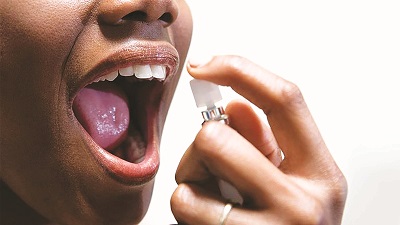By:Mpho Shelile
Bad breath, medically known as halitosis, can be an embarrassing and socially inhibiting issue for many individuals. It can negatively impact personal relationships, professional interactions, and self-confidence. While occasional bad breath is common and usually temporary, halitosis is persistent and may indicate an underlying health problem that requires attention.
According to Better Health Channel (BHC), halitosis (bad breath) is mostly caused by Sulphur-producing bacteria that normally lives on the surface of the tongue and in the throat. Sometimes, these bacteria starts to break down proteins at a very high rate and odorous volatile Sulphur compounds (VSC) are released from the back of the tongue and throat. Halitosis is not infectious. About 2.4% of the adult population suffers from bad breath.
When we don’t take good care of our mouths, bad breath can be a common and embarrassing problem. The reason for this is that food particles that remain in our mouth after eating can become a feast for bacteria, which break them down and create a variety of unpleasant-smelling sulfur compounds. These compounds can then linger in our mouths, leading to the infamous “bad breath” that we all want to avoid. Therefore, it’s important to prioritize good oral hygiene practices, such as regular brushing and flossing, to keep our mouths clean and fresh.
Certain foods, health conditions, and habits are among the causes of bad breath. In many cases, you can make bad breath better by keeping your mouth and teeth clean. If you can’t solve bad breath yourself, see your dentist or another healthcare professionals to be sure a more serious condition isn’t causing it.
Certain foods such as onions, garlic, spices, and acidic beverages can leave a lingering odor in the mouth. Additionally, crash dieting or fasting can result in ketosis, leading to foul-smelling breath.
Bad breath vary, depending on the cause. Some people worry too much about their breath even though they have little or no mouth odor. Others have bad breath and don’t know it. Because it’s hard to know how your breath smells, ask a close friend or relative to confirm if you have bad breath.
Symptoms of halitosis
A white coating on the tongue especially at the back of the tongue
Dry mouth
Build up around teeth
Post-nasal drip, or mucous
Morning bad breath and a burning tongue
Thick saliva and a constant need to clear your throat
Constant sour, bitter metallic taste.
Regardless of its type, halitosis has a great impact on a person’s quality of life, making it difficult to navigate through social interactions, as it is a condition that is highly noticed by other individuals and close contacts, and less by the person that experiences it, it is also a condition experienced by many people, impacting their quality of life and restraining them from enjoying social interactions.
Steps to follow when maintaining oral hygiene
Maintain Good Oral Hygiene: Brush your teeth at least twice a day with fluoride toothpaste, floss daily, and use a tongue scraper to remove bacteria from the tongue surface.
Stay Hydrated: Drink plenty of water throughout the day to keep your mouth moist and stimulate saliva production.
Avoid Tobacco Products: Quit smoking or chewing tobacco to improve your breath and overall oral health.
Watch Your Diet: Limit consumption of odorous foods and beverages, and try to eat a balanced diet rich in fruit and vegetables.
Regular Dental Check-ups: Visit your dentist for routine check-ups and cleanings to detect and address any dental issues early on.
Manage Medical Conditions: If halitosis persists despite good oral hygiene, consult your healthcare provider to rule out any underlying medical conditions and receive appropriate treatment.
Use Mouthwash: Mouthwashes containing antibacterial agents that can help reduce bacteria and freshen breath, but they should not be used as a substitute for brushing and flossing.
In conclusion halitosis is a common condition with various potential causes, ranging from poor oral hygiene to underlying medical issues. By maintaining good oral hygiene practices, staying hydrated, avoiding tobacco products, and addressing any underlying health concerns, individuals can effectively prevent and manage bad breath. If halitosis persists despite these measures, seeking professional dental or medical advice is recommended to identify and treat the underlying cause. With proper care and attention, most cases of halitosis can be successfully addressed, restoring confidence and improving overall oral health.


